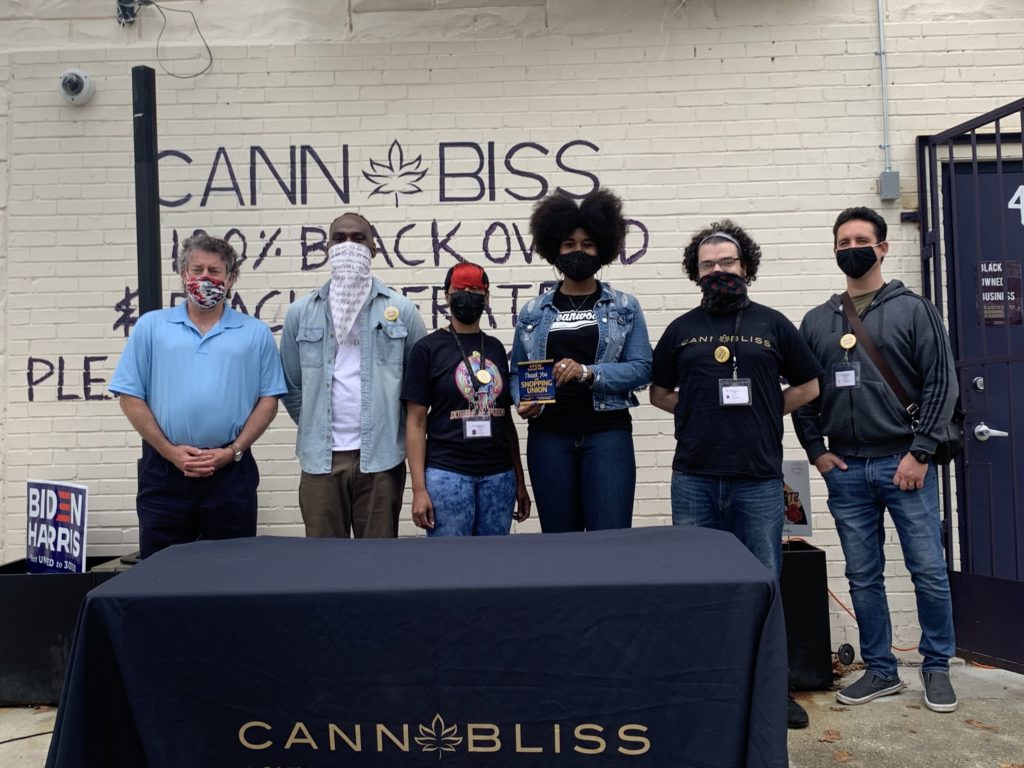The first Black-owned dispensary in D.C. is also the first to unionize. As excited employees looked on, Norbert Pickett, CEO and owner of DC Holistic Wellness signed the 5-year bargaining contract with United Food & Commercial Workers (UFCW) Local 400 on October 21.
“Here at DC Holistic Wellness, we want our workers to have a career, not look at this as a job,” Pickett said. “We’re an emerging market, so It’s important we have a highly trained workforce that’s very knowledgeable.”
The contract signing was held outside of DC Holistic Wellness and was attended by dispensary employees, union representatives, Advisory Neighborhood Commissioner Anthony Lorenzo Green (Ward 7) and members of the media.
UFCW has been a driving force behind cannabis industry unionization for the past ten years with its Cannabis Workers Rising campaign and boasts “tens of thousands” of members across the country on its website. As the legal cannabis industry continues to grow, UFCW estimates that the global market will top $145 billion by 2025.
Metro Washington Council AFL-CIO President Dyana Forester commended Pickett for eschewing the usual tension between managers and workers when it comes to unionizing and stepping up as the owner of DC Holistic Wellness and encouraging workers to join a union.
“As a union organizer, I know how hard it is to get employers to do the right thing, but when you have someone who says, ‘I want to come to the community and be responsible and be accountable, and the way to do that is having a voice for my workers that I don’t control,’ that is something we can all be proud of,” Forester said.
“Local 400 is very proud and honored to be here, to welcome these fine men and women to our family. It’s a historic moment, and the contract that we just signed gives these workers the protections that they so deserve,” said Chris Hoffmann, secretary-treasurer of UFCW Local 400.
Some of the provisions of the contract include: protection from being fired or disciplined without just cause; guaranteed pay increases every six months; paid time off including Election Day; a grievance procedure to resolve disputes with management; health care; and retirement benefits.
One of the hallmarks of the union contract is the apprenticeship program, designed to give workers accredited training to make themselves more marketable in the cannabis industry in areas such as trimming, sales and budtending.
“This is our way of getting more Black people and women in the industry,” Pickett said.
Robert Pizzi, metric analyst at DC Holistic Wellness, advocated for unionization at previous cannabis jobs he had but was promptly shut down.
“If you brought up the topic of unionization, you would get laughed at. [So] I’m really proud to be part of this moment… I thought [unionization] would be a ‘maybe someday’… for it to come 5-10 years faster than I thought it would, it is a great way for everyone working in the industry to have a path to the middle class.”

Photo by Shabnam Danesh

